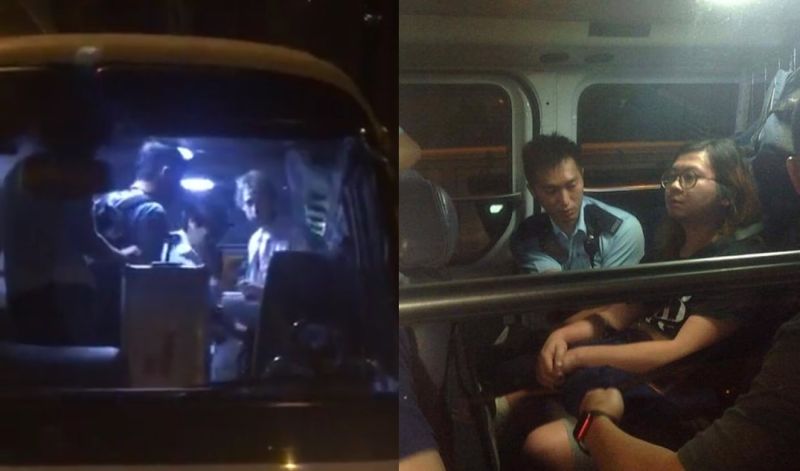Chief Executive Leung Chun-ying has defended the raid on a prominent live house, saying that the safety of visitors to industrial buildings must be considered and foreign performers must have work visas.
Independent Kwun Tong music venue Hidden Agenda was raided on Sunday night after a concert featuring UK act This Town Needs Guns and US band Mylets. The four overseas performers were taken away by the Immigration Department for allegedly lacking work visas. Each were released on bail, but they must report to the police next month.
The founder of the venue Hui Chung-wo was also arrested. He said he was charged with aiding and abetting the unlawful employment of tourists, employing illegal workers, failing to inspect a job seeker’s identity card, and failing to keep employment records.

On Sunday night, immigration officers posed as concert-goers at the Kwun Tong industrial building venue. As the concert ended, the officers asked to conduct an investigation.
The Immigration Department told HKFP that Hidden Agenda had previously applied for – and successfully obtained – work visas for overseas performing artists. “However, the department found that the unit did not apply for a work visa for the performers in question [on Sunday], and is investigating whether there have been any breaches of the law.”
Pro-democracy lawmakers helping Hui have criticised the government’s tight policy on the use of industrial buildings as music venues. Jeremy Tam of the Civic Party claimed the Immigration Department recently changed its policy and stopped issuing work visas if musicians were performing at an industrial building.
Revitalisation policy a ‘success’
The category of land use cannot not be changed from what is stated on industrial building land leases, despite the government’s vow to develop vacant industrial units. Hidden Agenda officially operates as a food factory, but it cannot receive a public entertainment licence from the Food and Environmental Hygiene Department.
However, Chief Executive Leung said the government’s policy to revitalise industrial buildings “has been a success.”

“[T]he revitalisation policy, or any policy related to industrial buildings, does not say any kind of use is permitted in industrial buildings,” he said. “What should we consider? The safety of people using this building – including the bands and the audience they attract.”
“You can see that we have been targeting the illegal use of industrial buildings even within the revitalisation plans,” he added. “The immigration policy is that anyone who comes to work in Hong Kong must obtain a work visa.”
Policy halted in 2016
The government had been pushing forward the policy to revitalise industrial buildings since 2010.
Leung’s 2013 policy address proposed room for minor changes relating to the use of industrial buildings. His 2016 policy address said that the Lands Department had approved 68 applications for wholesale conversion and eight for redevelopment.
“The policy has achieved the intended effect of maximising the use of industrial buildings. As the vacancy rate of industrial buildings has dropped steadily to a low level over the past few years, the policy will cease at the end of March this year as scheduled,” the 2016 policy address read.
